Restoring native wildlife to urban areas is gaining momentum. Another 13 community groups across the motu (country) will receive a portion of $50,000 to realise their trapping dreams.
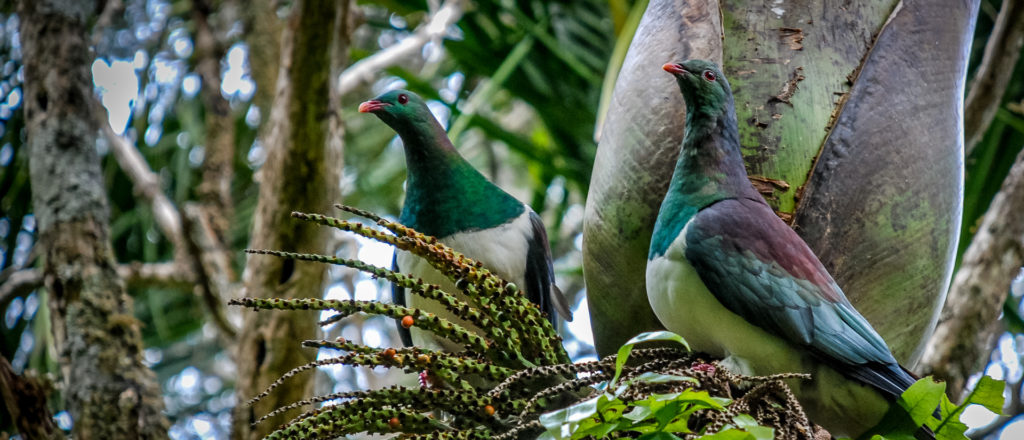
The Predator Free New Zealand Trust helps outstanding predator free communities buy bait stations, chew cards, and traps and to spread the word in their communities.
Over the past seven years, the Trust has funded 90 community conservation groups to the tune of more than $400,000. That’s a total of 17,644 trapping products, such as trap boxes and traps, and 14,263 pre-trapping products, like chew cards and tracking tunnels.
Groups funded by region
Auckland
Pest Free Warkworth
Pest Free Warkworth already has 200 traps/tunnels in action in the backyards of its residents. With dreams of seeing more korimako (bellbirds) in their small town, local trappers are ready for another big push. To reach the recommended one trap per every five backyards, the group needs to roll out 200 more traps.
This funding will help Pest Free Warkworth purchase enough boxes and traps for the community. Surrounded by regional parks and more significant conservation projects, Warkworth is a crucial piece of the larger predator free puzzle in the area.
Are you a local interested in getting involved? Email [email protected]
Bay of Plenty
HALO Whakatāne
Residents notice more rats and hedgehogs than native birds in the quiet seaside town of Matata near Whakatāne. Under the guidance of HALO Whakatāne, Matata residents have an ambitious plan to say “goodbye” to introduced predators and “welcome back” to mātātā (fernbird), matuku (Australiasian Bittern) and tūturiwhatu (dotterel).
They want to get all 618 households, two schools, four marae and a rugby club on board for a pest free Matata.
With the funding injection, volunteers will purchase trap mechanisms and materials for building tunnels and distribute them into the community.
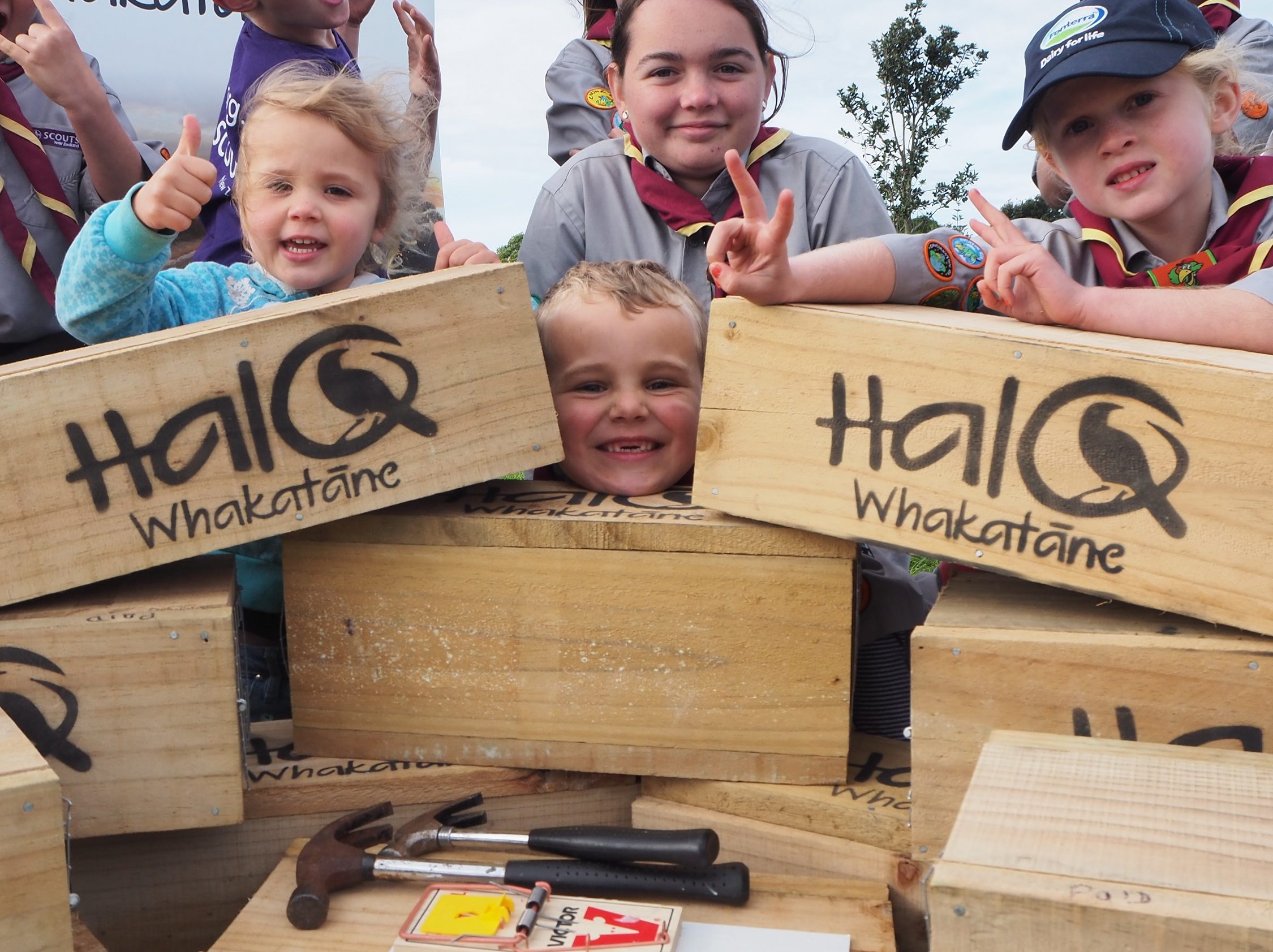
Are you a local interested in getting involved? Check out the HALO Whakatāne website.
Predator Free Matua
Fresh river water and salty sea mix in the habitat surrounding the suburb of Matua in Tauranga. The peninsula makes an enviable home for humans, insects, reptiles and birds – but also introduced predators like rats. Predator Free Matua swung into action four years ago, distributing free rat trapping tunnels. Progress has been made but the group is ready to ramp things up.
Volunteers have put together a more coordinated effort to reduce rats and bring native birds back. There is support from tangata whenua, schools and the city council to increase monitoring and get more traps deployed.
With funds from Predator Free NZ Trust, Predator Free Matua has plans to recruit new trappers to create a perimeter of backyard rat traps and two trapping lines monitored by volunteers.
Are you a local interested in getting involved? Check out the Predator Free BOP website.
Waikato
Whangamata Harbourcare
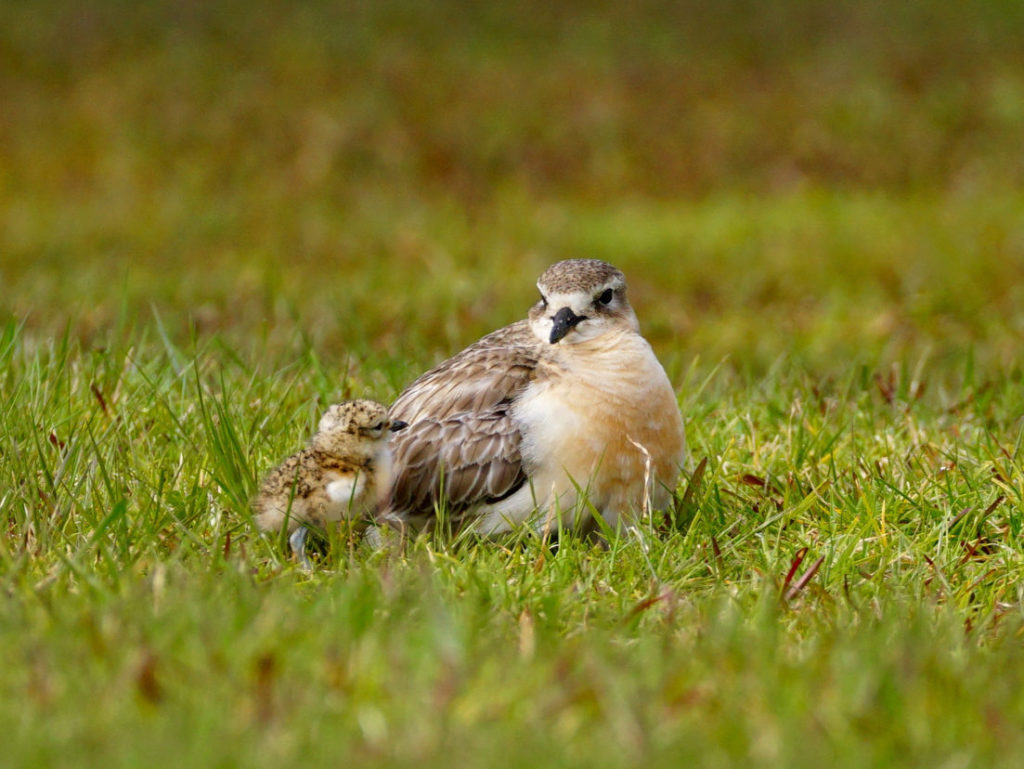
A pristine harbour safe for moho pererū (banded rail), mātātā (fernbird), and rare migratory birds is the vision of Whangamata Harbourcare. Volunteers run trap and bait lines along the harbour and golf course, catching on average 30 rats, eight possums, seven hedgehogs and two stoats per month.
Now, it’s time to take it up a notch and mobilise nearby residents. With Predator Free NZ Trust funding, Whangamata Harbourcare aims to get 100 backyards involved with trapping to kick things off.
Are you a local interested in getting involved? Check out Whangamata Harbourcare’s website.
AJ Seeley Gully Trust
Mature kahikatea, rimu, mahoe, and nīkau palms line the tracks, and tūī sing in AJ Seeley Gully Reserve in Hamilton. Volunteers have lovingly restored this gully by planting and removing rats, mice and hedgehogs. However, rats entering the reserve from surrounding residential properties thwart their dreams of becoming totally predator free.
With a funding boost from Predator Free NZ Trust, AJ Seeley Gully Trust seeks to establish an 80-metre-wide perimeter buffer zone of backyard traps. Volunteers equipped with rat traps and tunnels are ready to get door-knocking to find 60 residents keen to help.
Are you a local interested in getting involved? Check out the Friends of Seeley Gully Facebook group.
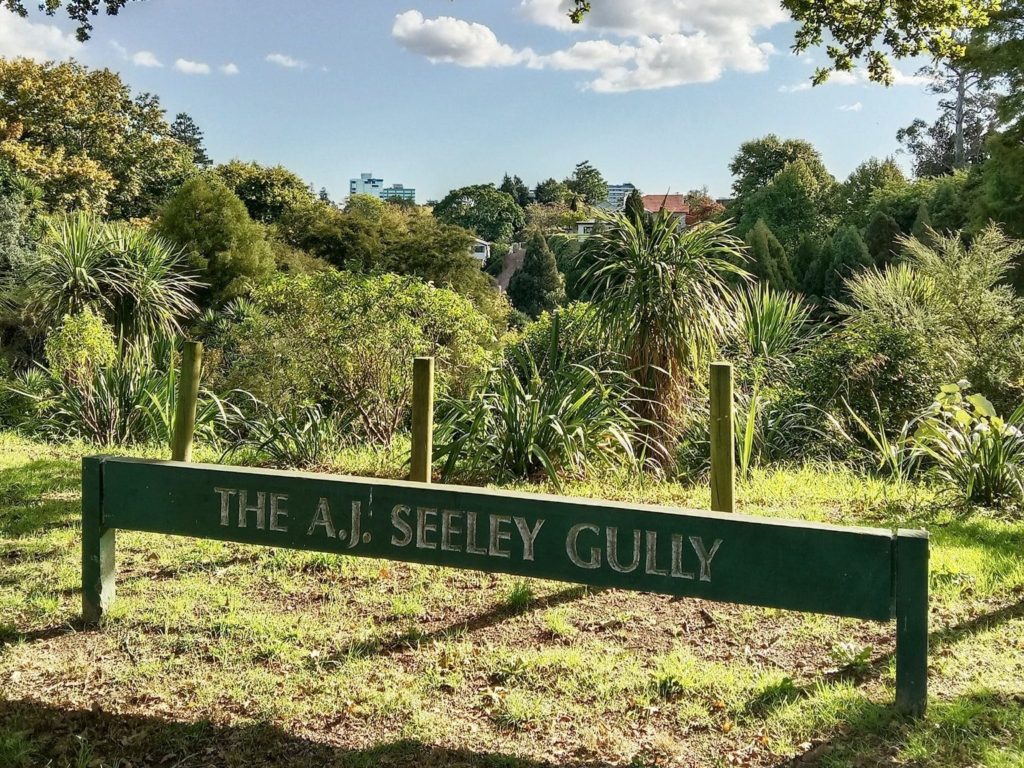
Hawkes Bay
Predator Free Napier Hill
Hawke’s Bay is a hub of conservation work. With large-scale ecological restoration projects and a possum-free Māhia Peninsula project underway, the region is busy making safe spaces for wildlife. But to truly help native species thrive, urban and residential areas need to hop on the bandwagon.
Residents on Napier Hill have been trapping for the past two years – lots of rats have been caught, and the community spirit is high. With their portion of the funding, a revitalised Predator Free Napier Hill will focus on getting traps into the backyards that back onto gullies – prime wildlife habitat.
Are you a local interested in getting involved? Email [email protected]
Wellington
Pest Free Aotea
More birds and bugs in the ‘burbs: that’s the goal of Pest Free Aotea. In a nearly finished subdivision near Porirua, backyard trapping already has a small foothold with some residents. COVID dampened recruiting efforts, but with sightings of tūī, pīwakawaka (fantail), and tauhou (silver eye) energising the group, they want to expand.
Funding from Predator Free NZ will go towards distributing traps and tunnels, targeting those households bordering reserves. They hope to have another 100 homes trapping in the next year.
Are you a local interested in getting involved? Check out the Pest Free Aotea Facebook group.
Canterbury
Richmond Community Gardens
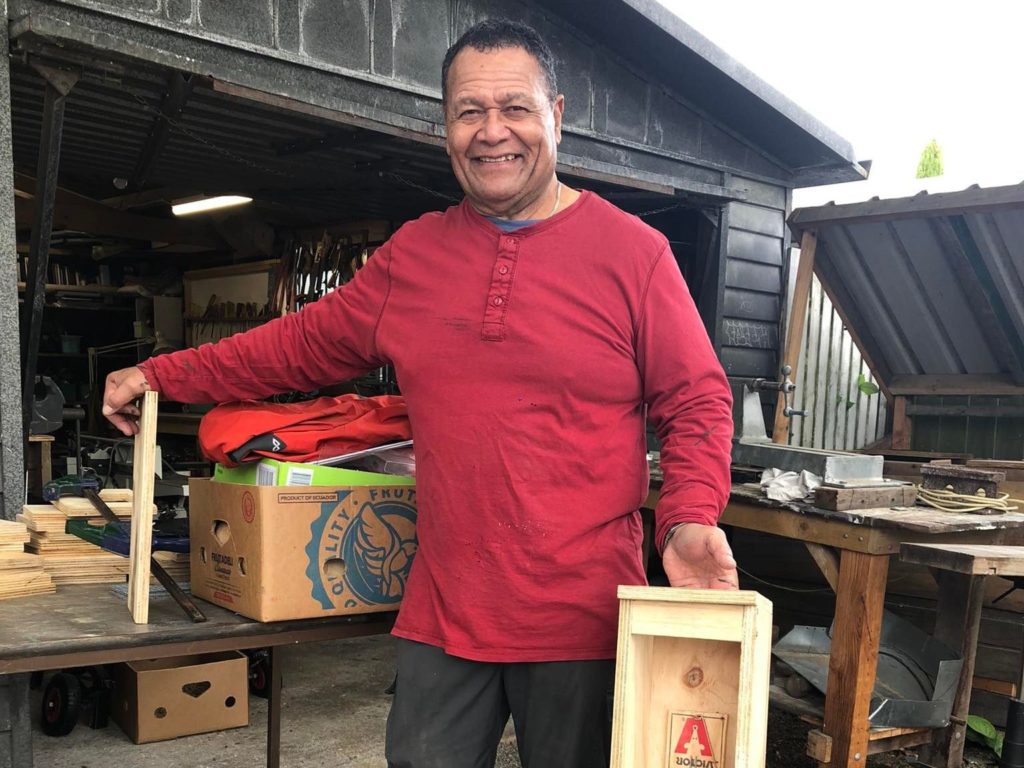
The Richmond Community Garden volunteers are unstoppable in their mission to transform red zone land in Christchurch. The group brings the community together with stewardship over a one-hectare section beside the Avon river. What started as a community food garden expanded into a fungi farm, community composting, berm restoration and more.
Now, the Richmond Urban Trapping Group is looking into predator control. The gardens are ideally placed as a community hub to provide traps and support to residents. With funding, their men’s shed can build more boxes, buy more traps and train residents on how to trap.
Are you a local interested in getting involved? Check out the Richmond Community Gardens website.
reWild Wainui
Wainui township sits on the edge of Akaroa Harbour, on the Banks Peninsula. It was once home to rich bird and invertebrate life (a settler talked about “the darkening of the sky” when huge flocks of kererū came to feed on the native trees). Now, grasslands rule, and few birds remain; the residents are more painfully aware of the multitude of introduced pests.
While Pest Free Banks Peninsula is a multi-million dollar landscape-scale project, communities like Wainui want to “bring the wild back” to their residential areas. Harnessing that enthusiasm, reWild Wainui was born. First step: sort out the backyards.
With Predator Free NZ Trust funding, reWild Wainui will supply 50 residents with a trap. With a trapping certification under his belt, its leader Lawrence Smith will provide trapping advice to encourage residents to become trapping experts rather than “set and forget”.
Are you a local interested in getting involved? Check out the reWild Wainui website.
Waimairi Beach ChCh Backyard Trapping
Dunes, forest, wetlands – nature surrounds Waimairi Beach in Christchurch. A new community group wants to reduce introduced predators to protect nesting shorebirds, forest birds, insects, and reptiles.
Funding will help Waimairi Beach Backyard Trapping on their mission to put a rat trap in one in five backyards – that’s 80 households all up.
Are you a local interested in getting involved? Email [email protected]
Predator Free Lyttelton
What happens when an ecologist, a graduate with a master’s in rat predation and a GIS expert get chatting? They hatch a master plan to tackle the rat and possums problem in their neighbourhood, of course.
With a popular pizza joint in Lyttelton as a community hub to spread the word, Predator Free Lyttelton have a plan to grow an appetite for backyard trapping in their suburb of Christchurch. The newly formed group has already made supportive friends with nearby Port Hills and Riccarton groups. With a slice of funding, the new group can buy materials for traps and tunnels for the first phase of their mission: rat control.
Are you a local interested in getting involved? Email [email protected]
Predator Free MacKenzie
What started as a few people building traps for interested locals has snowballed into an organised and structured volunteer group with a dream to reduce the number of rats, hedgehogs, stoats and weasels in Twizel. Their goal is simple yet crucial: “connect young and old to protect our native fauna”.
The funding will go towards building tunnels and traps and holding regular trapping workshops. The founders of Predator Free MacKenzie would also like to offer a trap checking service to any households who want to have a trap but cannot check them (for example, holiday homes or the elderly).
Are you a local interested in getting involved? Email [email protected]
Otago
OUTA
The leader of Oamaru Urban Trapping Alliance (OUTA), Andy Powazynski, once called the predator free 2050 mission “mammoth and ambitious” – but he’s helping Oamaru rise to the challenge.
With the backing and help from Waitaki Menzshed, heaps of local businesses and the mayor, OUTA rolled out 60 traps into the community. Another 60 are on the way, but a town the size of Oamaru is going to need a lot more traps.
Thanks to Predator Free NZ Trust funding, OUTA can grow the number of backyard traps closer to their goal of 5,500 in the community.
Are you a local interested in getting involved? Email [email protected]

